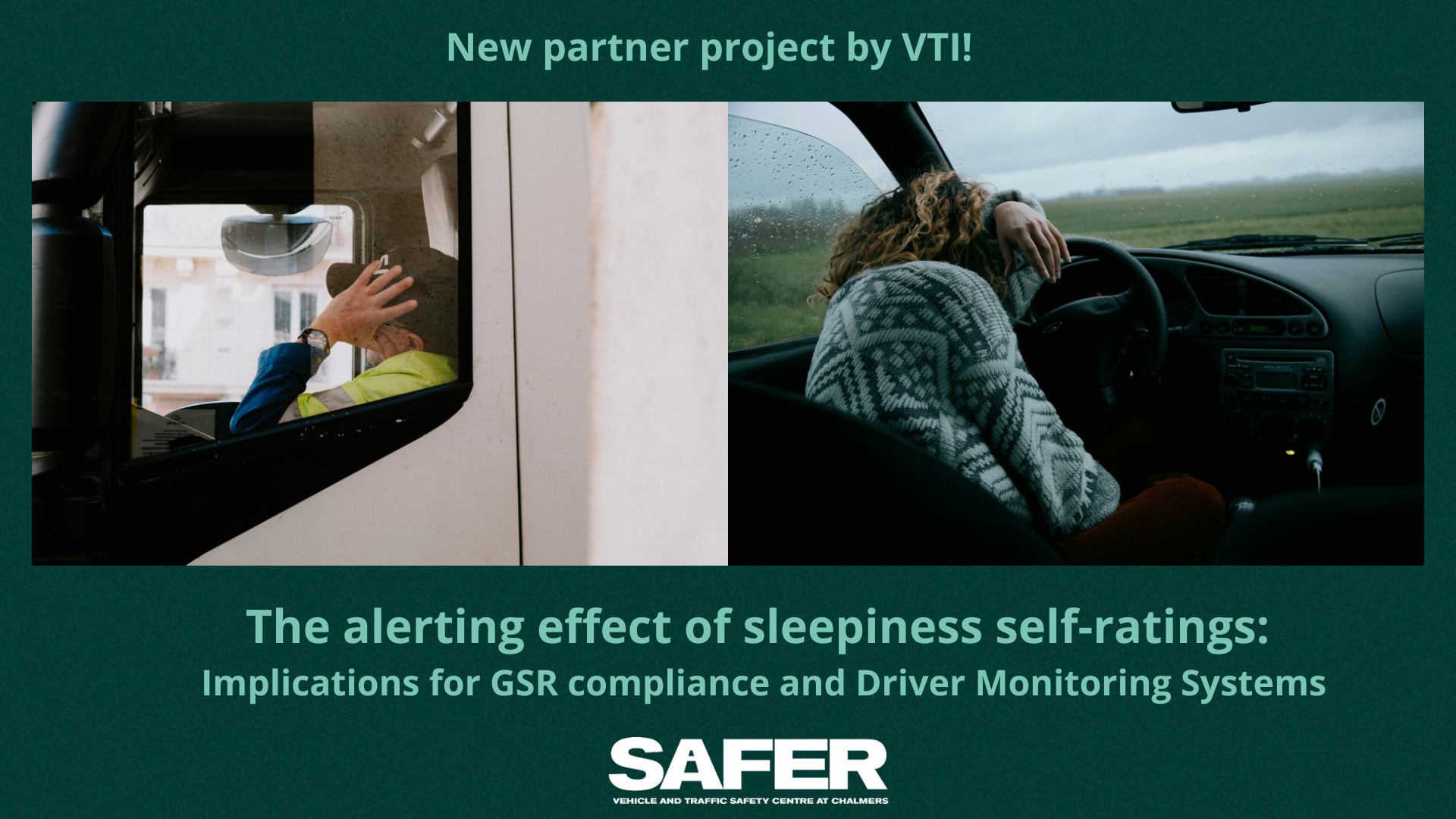New partner project on sleepiness and driver monitoring
In a new partner project within the SAFER platform, VTI is working to better understand how self-ratings of sleepiness affect drivers – and what this means for future driver monitoring systems. The project is called “The alerting effect of sleepiness self-ratings: Implications for GSR compliance and Driver Monitoring Systems”.
Today, the Karolinska Sleepiness Scale (KSS) is used as a standard tool to measure driver sleepiness, both in research and in regulatory contexts. But one important question is still unanswered: is the driver affected by the act of rating their own sleepiness? Can this in itself make the driver temporarily more alert – and thereby influence the results?
In the project, the researchers will use high-resolution data from several driving simulator studies. They will analyse both physiological signals (such as eye movements, heart rate and EEG) and driving behaviour (for example how well the driver keeps within the lane) in the time before and after each KSS rating. Using advanced time series methods, they want to find out whether there is an immediate or short-term “sharpening” when the driver rates their sleepiness.
The hypothesis is that KSS ratings lead to a short-term increase in alertness. If this is true, it may be very important for how we interpret subjective measures of sleepiness, and for how we design and evaluate future Driver Monitoring Systems (DMS) within the framework of the EU General Safety Regulation (GSR).
The project is carried out by VTI with a budget of 324,000 SEK from Skyltfonden.
Contact person: Christer Ahlström, christer.ahlstrom at vti.se

